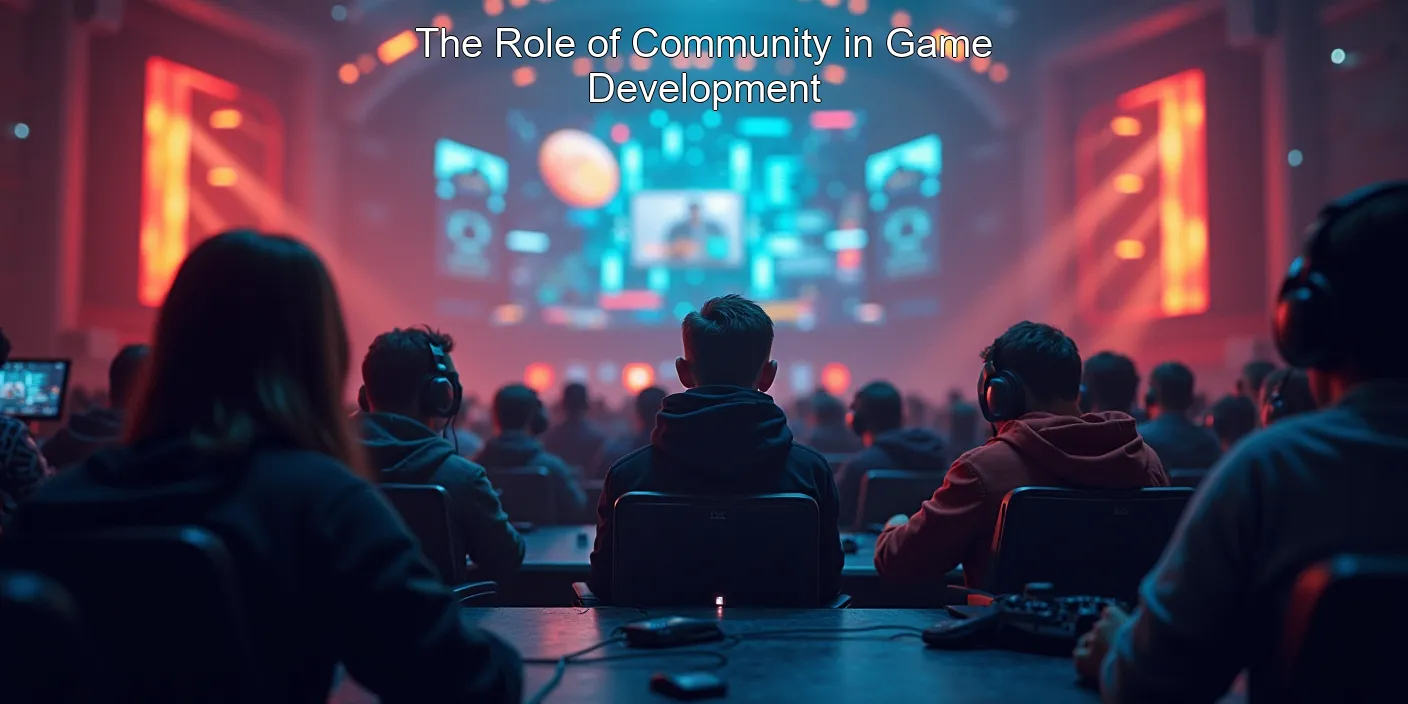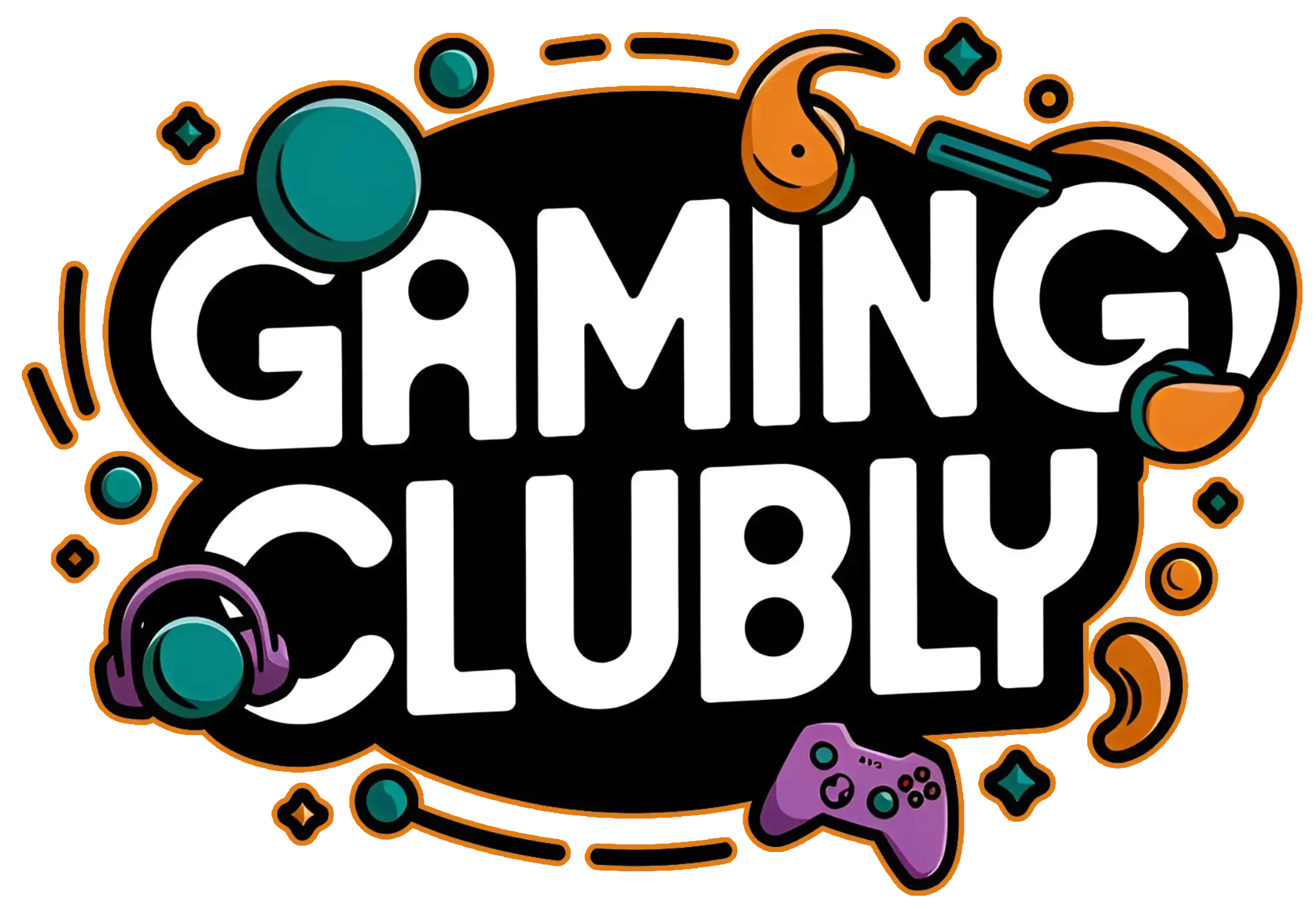Exploring the Creative Process of Game Developers
Ever wondered what goes on behind the scenes in game development? Let’s dive into the fascinating world of game creators and uncover their creative process and challenges.

“Inside Game Creation: Creativity & Challenges Unveiled”
#GameDevelopers, #Interviews, #GameDev
| Key Aspects | Description |
|---|---|
| Creative Process | Ideation, prototyping, iteration |
| Common Challenges | Time constraints, technical limitations, market demands |
| Essential Skills | Programming, art design, storytelling |
The journey of game development is filled with exciting milestones and hurdles. Here’s what you need to know:
- Brainstorming and concept development are crucial first steps
- Prototyping helps validate ideas quickly
- Iterative design ensures continuous improvement
- Collaboration between different teams is essential
- Balancing creativity with technical constraints is an ongoing challenge
“Game development is a unique blend of art and science. It’s about creating experiences that resonate with players on multiple levels.” – John Carmack, co-founder of id Software
FAQ: Understanding Game Development
Q: How long does it typically take to develop a game?
A: Development time varies greatly, from a few months for indie games to several years for AAA titles.
Q: What skills are most important for aspiring game developers?
A: Programming, art design, and storytelling are crucial, but problem-solving and teamwork are equally important.
Q: How do developers balance creativity with market demands?
A: It’s a delicate balance of staying true to the creative vision while considering player preferences and industry trends.
Tips for Aspiring Game Developers
- Start small and focus on completing projects
- Learn multiple programming languages
- Develop a strong portfolio showcasing your skills
- Network with other developers and join game jams
- Stay updated with the latest industry trends and technologies
According to a recent survey by the International Game Developers Association, 33% of developers work over 40 hours per week during crunch time, highlighting the intense dedication required in this field.
The Impact of Gaming Communities on Development

The relationship between developers and gaming communities plays a crucial role in shaping the industry. Let’s explore how this dynamic influences game creation.
“Shaping Games: Developer-Community Synergy”
| Community Aspect | Impact on Development |
|---|---|
| Feedback | Shapes game updates and future projects |
| Modding | Extends game life and inspires new features |
| Beta Testing | Helps identify bugs and balance issues |
Gaming communities have become an integral part of the development process:
- Early access programs allow players to influence development
- Community forums provide valuable insights for developers
- User-generated content can significantly extend a game’s lifespan
- Crowdfunding platforms enable direct community support for projects
- Esports scenes drive competitive feature development
“Our community is the lifeblood of our games. Their passion and feedback drive us to create better experiences.” – Gabe Newell, co-founder of Valve Corporation
FAQ: Gaming Communities and Development
Q: How do developers incorporate community feedback?
A: Through beta tests, surveys, and monitoring community discussions to identify popular requests and issues.
Q: Can community involvement negatively impact game development?
A: Sometimes, balancing community desires with the original vision can be challenging for developers.
Q: How important is community management in game development?
A: It’s crucial for maintaining a positive relationship between developers and players, and for gathering valuable feedback.
Best Practices for Community Engagement
- Maintain transparent communication with players
- Regularly update the community on development progress
- Organize events to foster community interaction
- Recognize and reward community contributions
- Address concerns and feedback promptly
A study by Unity found that games with active communities have a 3-5 times longer lifespan than those without, emphasizing the importance of community engagement in game development.
For more insights into the world of game development, check out our Game Dev Insights section. Discover how Multiplayer Games are shaping the industry, and stay updated with the latest PC News. Don’t forget to explore our Gaming Communities for more on player engagement and interaction.
Unveiling the Creative Process: Interviews with Game Developers
| Key Aspects | Description |
|---|---|
| Creative Process | Ideation, prototyping, iteration |
| Challenges | Technical limitations, time constraints, market demands |
| Skills Required | Programming, art, design, storytelling |
Delving into the world of game development is like peering behind the curtain of a magical show. It’s a realm where creativity meets technology, and where passionate individuals breathe life into virtual worlds. Let’s explore the key elements that make up this fascinating industry:
- Conceptualization and brainstorming
- Prototyping and playtesting
- Art and sound design
- Programming and technical implementation
- Marketing and community engagement
“Game development is not just about coding or creating art. It’s about crafting experiences that resonate with players on an emotional level.” – John Carmack, co-founder of id Software
FAQ: Insights from Game Developers
Q: What’s the most challenging aspect of game development?
A: Many developers cite balancing creativity with technical constraints as a significant challenge.
Q: How long does it typically take to develop a game?
A: Development time varies widely, from a few months for indie games to several years for AAA titles.
Q: What skills are essential for aspiring game developers?
A: A mix of technical skills, creativity, and problem-solving abilities are crucial in this field.
The Creative Journey: From Concept to Launch

The path from a game idea to a finished product is filled with excitement, challenges, and countless iterations. Here are some practical tips for aspiring game developers:
“From Concept to Console: Navigating the Thrills and Trials of Game Development”
- Start small and focus on completing projects
- Learn to use game engines like Unity or Unreal
- Collaborate with others and seek feedback
- Stay updated with industry trends and technologies
- Build a portfolio showcasing your best work
According to a recent survey by the International Game Developers Association, 33% of game developers work more than 40 hours per week during crunch time, highlighting the intense dedication required in this field.
Navigating Challenges in Game Development
| Challenge | Solution |
|---|---|
| Technical limitations | Optimize code and assets |
| Market saturation | Focus on unique selling points |
| Funding constraints | Explore crowdfunding or publisher partnerships |
Game development is not without its hurdles. From technical constraints to market pressures, developers face a myriad of challenges. However, these obstacles often lead to innovative solutions and push the boundaries of what’s possible in gaming.
- Adapting to rapidly changing technologies
- Balancing player expectations with creative vision
- Managing large teams across different disciplines
- Ensuring game performance across various platforms
“The biggest challenge in game development is not just creating something fun, but creating something that stands out in a crowded market.” – Jade Raymond, founder of Haven Studios
FAQ: Overcoming Development Hurdles
Q: How do developers handle scope creep?
A: Effective project management and clear prioritization are key to managing scope.
Q: What’s the role of player feedback in development?
A: Player feedback is crucial, often shaping the direction of updates and future features.
Q: How do indie developers compete with large studios?
A: By focusing on unique concepts and building strong community relationships.
To dive deeper into the world of game development, check out our Game Dev Insights section for more in-depth articles and interviews. For those interested in the social aspect of gaming, our Gaming Communities page offers valuable insights into player engagement and community building.
Whether you’re a fan of collaborative gameplay or competitive esports, our Multiplayer Games category provides the latest news and trends in online gaming. And for those keeping an eye on the cutting edge of gaming technology, don’t miss our PC News section for updates on hardware and software advancements shaping the future of gaming.
The world of game development is ever-evolving, filled with passionate creators pushing the boundaries of interactive entertainment. By understanding the challenges and creative processes behind our favorite games, we gain a deeper appreciation for the art and science of game development.
Interview with Game Developers: Insights from Industry Pioneers
| Era | Key Developments | Impact |
|---|---|---|
| 1970s-1980s | Arcade and early console games | Laid foundation for modern gaming |
| 1990s-2000s | 3D graphics and online multiplayer | Revolutionized gameplay experiences |
| 2010s-Present | Mobile gaming and VR/AR | Expanded accessibility and immersion |
The world of game development has undergone a remarkable transformation since its inception. Let’s explore the key milestones:
- Birth of arcade games and home consoles
- Rise of personal computers as gaming platforms
- of 3D graphics and immersive storytelling
- Emergence of online multiplayer and social gaming
- Mobile revolution and the democratization of game development
“The most disruptive change in the industry was the shift to digital distribution. It opened doors for indie developers and changed how games are marketed and consumed.” – John Carmack, co-founder of id Software
FAQ: Game Development Insights
Q: What skills are essential for aspiring game developers?
A: Programming, creativity, problem-solving, and teamwork are crucial skills for game developers.
Q: How has the indie game scene impacted the industry?
A: Indie games have brought innovation, unique storytelling, and diverse gameplay experiences to the forefront.
Q: What challenges do game developers face today?
A: Balancing creativity with market demands, managing crunch time, and adapting to rapidly changing technologies are significant challenges.
- Learn a versatile programming language like C++ or C#
- Familiarize yourself with game engines such as Unity or Unreal
- Build a portfolio of small projects to showcase your skills
- Network with other developers and attend industry events
- Stay updated with the latest gaming trends and technologies
According to a recent survey, the global gaming market is expected to reach $256.97 billion by 2025, highlighting the immense opportunities in the field.
The Role of Community in Game Development

| Community Aspect | Benefit |
|---|---|
| Beta Testing | Improved game quality and bug detection |
| Modding | Extended game lifespan and creativity |
| Feedback | Enhanced game design and features |
The gaming community plays a vital role in shaping the development process. Here’s how:
- Providing valuable feedback during beta testing phases
- Creating mods that extend game longevity and add new content
- Participating in crowdfunding campaigns for indie projects
- Forming passionate fan bases that drive game popularity
“Our community has been instrumental in shaping the direction of our games. Their passion and creativity never cease to amaze us.” – Markus Persson, creator of Minecraft
FAQ: Community Engagement in Game Development
Q: How do developers balance community feedback with their vision?
A: Developers often use a mix of data analytics and community management to find the right balance.
Q: What role do gaming communities play in marketing?
A: Communities can be powerful marketing tools through word-of-mouth promotion and user-generated content.
Q: How can players contribute to game development beyond feedback?
A: Players can contribute through modding, creating content, and participating in early access programs.
- Maintain transparent communication with your player base
- Implement a robust feedback system for bug reports and suggestions
- Organize community events and competitions to foster engagement
- Recognize and reward community contributions
- Provide tools and support for modding and content creation
A study by the Entertainment Software Association found that 65% of American adults play video games, showcasing the vast potential for community engagement in the industry.

For more insights into the world of game development, check out our Game Dev Insights section. Discover how Gaming Communities shape the industry, and explore the latest trends in Multiplayer Games. Stay updated with the latest PC News to keep your finger on the pulse of gaming technology.



